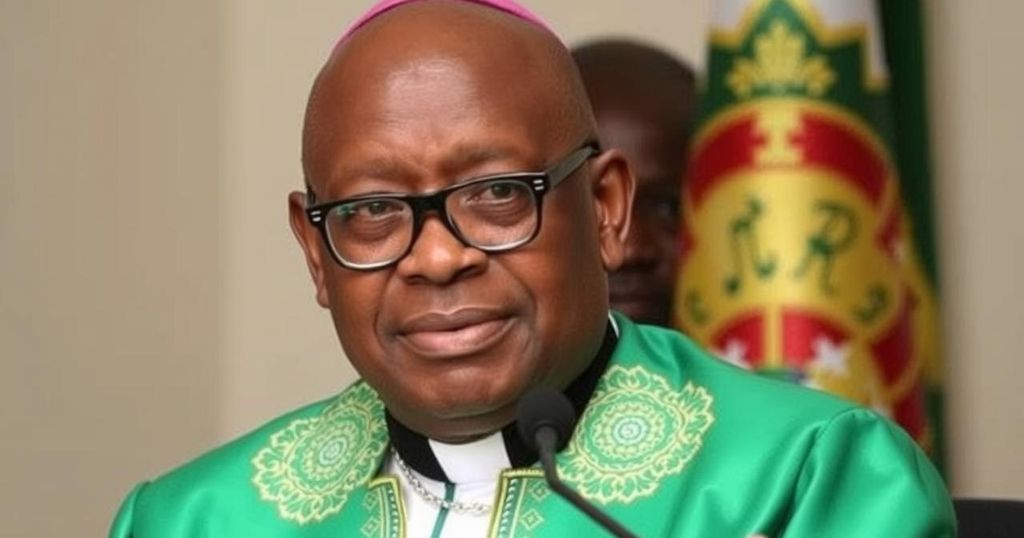The Episcopal Conference of the DRC reacted to Deputy Prime Minister Jean-Pierre Bemba’s accusations of incitement and mismanagement within the Catholic Church. In their formal response, church leaders urged for evidence and claimed their collaboration with the government aims to aid local communities. This exchange is set against contentious constitutional revisions allowing the President to extend his term.
The Episcopal Conference of the Democratic Republic of Congo (DRC) expressed regret over accusations issued by Deputy Prime Minister Jean-Pierre Bemba in a recent radio interview. Bemba alleged that certain political figures, including those of religious faith, were inciting hatred against the state. Additionally, he suggested potential mismanagement of funds provided to dioceses for charitable work. In their response, the Episcopal Conference, represented by Bishop Donatien Nshole, called for evidence to support these claims and highlighted the collaborative efforts between the government and the Church to benefit local communities. Bishop Nshole emphasized that only limited funding has been received, contrary to the Deputy Prime Minister’s implications about financial mismanagement. This exchange occurs against the backdrop of an ongoing controversy regarding constitutional revisions that may enable President Félix-Antoine Tshisekedi to pursue a third term, amid diminishing support from church leaders for such amendments.
The controversy involving the Episcopal Conference and Deputy Prime Minister Jean-Pierre Bemba is deeply rooted in the current political climate of the DRC. Tensions have risen due to proposed constitutional changes that would allow the incumbent president to seek a third term. The Catholic Church, a significant authority in the region, has opposed these changes, further straining relations with the government. In this context, accusations of malfeasance regarding Church funding and public statements inciting hatred were made. The Church’s response underscores its commitment to social justice and collaboration with the government amid these politically charged discussions.
The situation highlights a tense relationship between the DRC government and the Catholic Church, exacerbated by accusations from political figures. The Church seeks to clarify its stance and assert its ethical contributions to society while challenging the government to substantiate claims of impropriety. This confrontation occurs within a broader context of political maneuvering around constitutional reforms that could significantly impact the nation’s governance.
Original Source: www.fides.org







